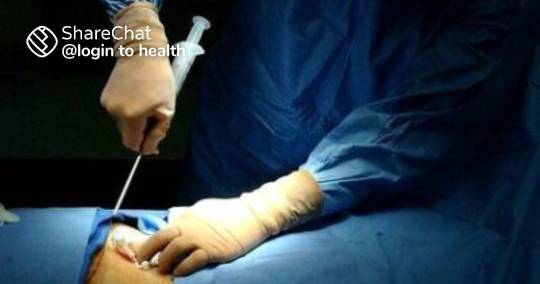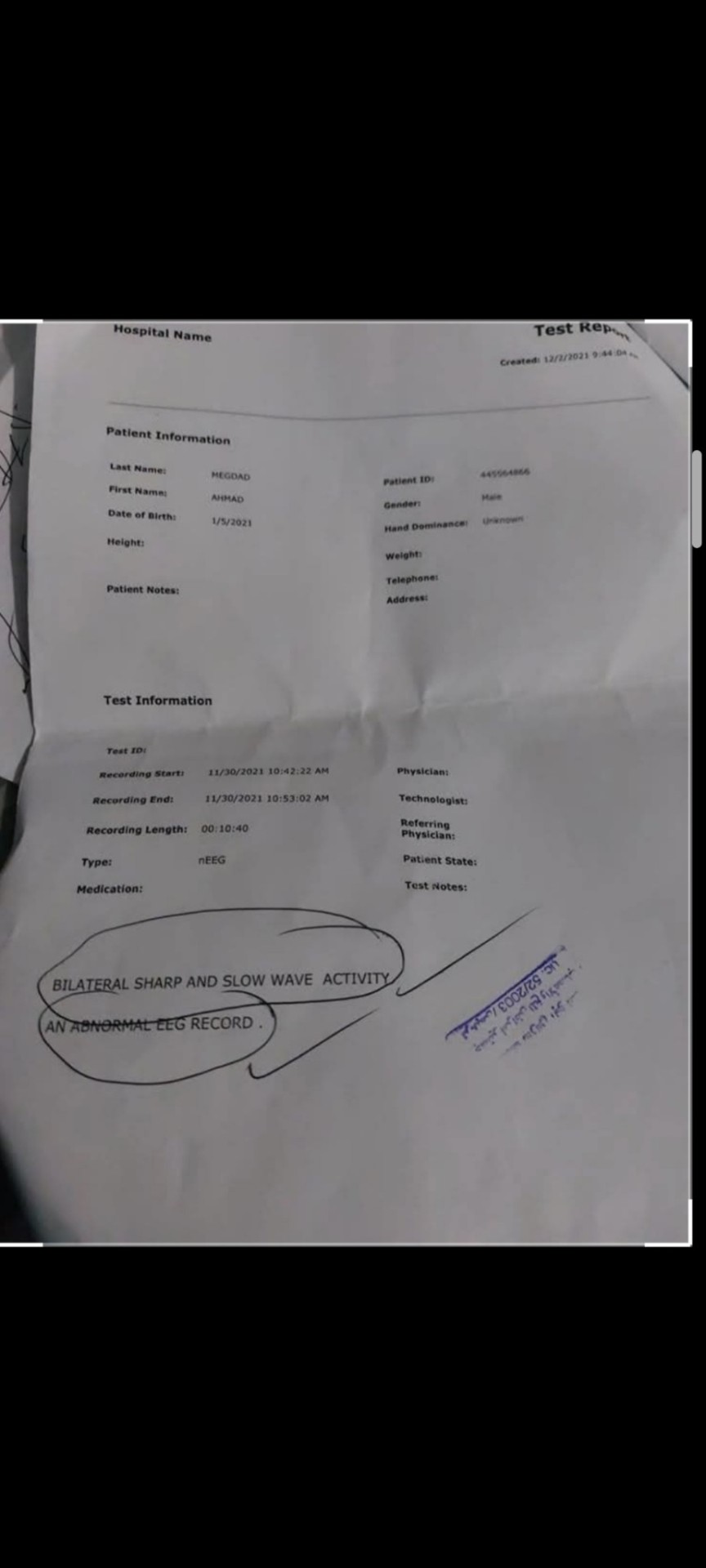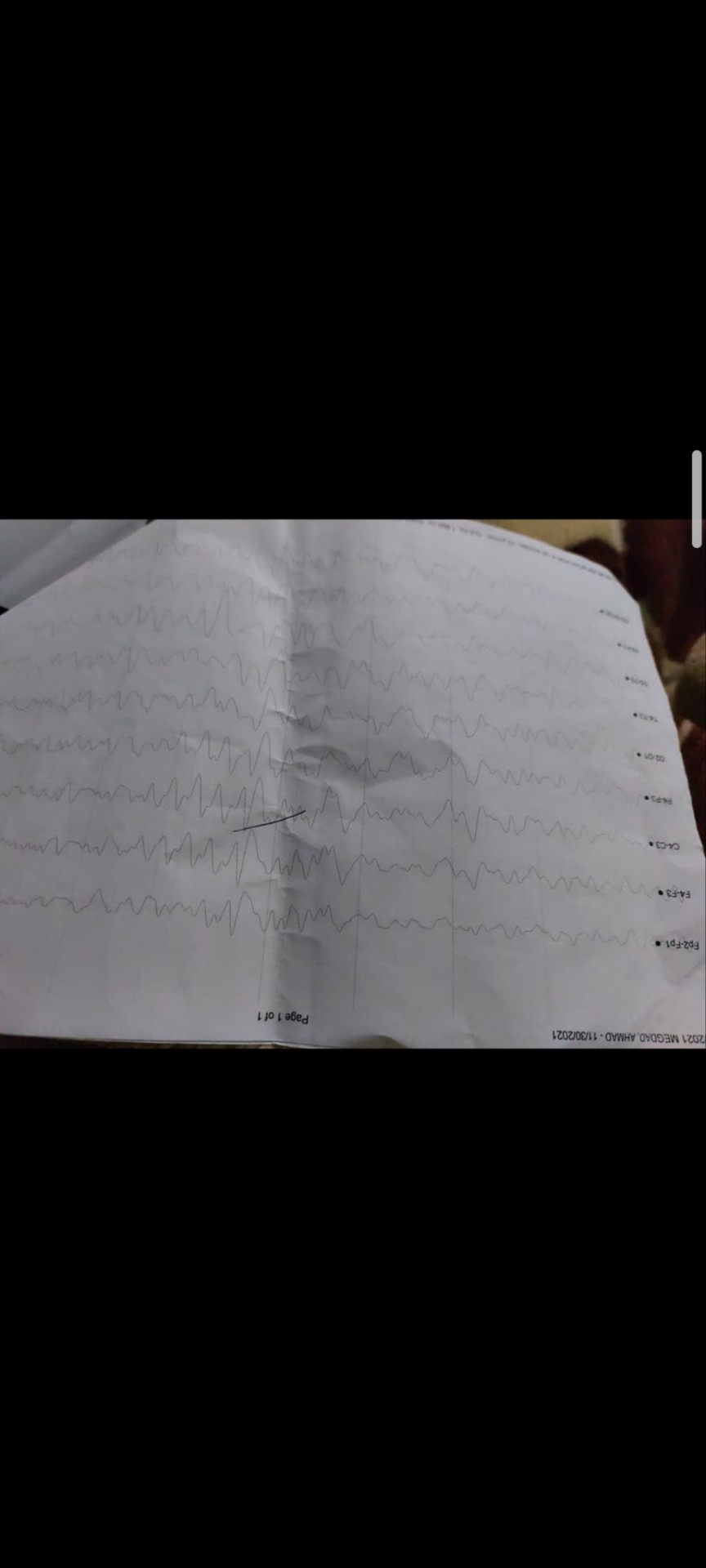#liver donor
Explore tagged Tumblr posts
Text

Advantages of robot-assisted liver transplant surgery are:
• Enhanced Surgical Precision and Visual Clarity: The combination of magnified imagery and precise control empowers surgeons to perform intricate tasks with remarkable accuracy, minimizing the risk of unintended harm to crucial structures.
• Reduced Impact on Tissues: Robotic-assisted procedures utilize smaller incisions, leading to less blood loss, decreased tissue trauma, and lower post-operative discomfort. This ultimately facilitates a speedier recovery process.
• Quicker Healing Process: Patients who undergo robot-assisted liver transplant surgery often experience shorter hospital stays and faster recuperation times, enabling them to resume their normal activities sooner.
• Lower Infection Rates: The use of smaller incisions inherently lowers the probability of infections, contributing significantly to overall improved liver transplant results.
• Preservation of Healthy Tissue: The precision of robotic arms empowers surgeons to better preserve healthy tissue, leading to enhanced organ functionality and fewer complications after surgery.
• Personalized Approach: Robotic systems can be customized to suit each patient's unique anatomical differences, ensuring a tailored and optimized surgical strategy.
• Reduced Need for Blood Transfusions: Precise surgical techniques often result in less blood loss, translating to fewer instances of blood transfusions required during the surgical procedure.
• Improved Cosmetic Results: The use of smaller incisions leads to improved cosmetic outcomes, which could potentially boost patient contentment and body image.
The liver transplant cost for a robot-assisted procedure is comparatively more than a conventional liver transplant procedure. However, considering the above advantages of a robotic-assisted procedure, many patients are opting for this method.
Not all cities in India have the facility of a robotic-assisted medical procedure, as it needs the latest technology and equipment which is not available everywhere. Mumbai is one of the best healthcare cities in India and has many experienced doctors and well-equipped hospitals to carry out this procedure comfortably.
The cost of liver transplant in Mumbai may be slightly more than the other cities due to the availability of these facilities, but it also has some of the best success rates in the country.
#liver transplant#liver transplantation#liver donor#liver transplant cost#liver diseases#liver failure#cost of liver transplant#cost of liver transplant in Mumbai
0 notes
Text

The survival rate after a liver transplant varies depending on several factors, such as the individual's overall health, the reason for the transplant, and how well the body accepts the new liver.
Generally, the survival rates are quite promising. Many liver transplant recipients can live for many years after the procedure, and some have even been able to live decades with a healthy transplanted liver.
However, it's essential to follow the recommended post-transplant care and take immunosuppressive medications to prevent organ rejection and ensure long-term success.
Liver transplant depends on various factors, including:
Severity of Liver Disease: The primary reason for a liver transplant is often severe liver disease or end-stage liver failure.
Medical Eligibility: The candidate's overall health and medical condition will be evaluated to determine if they are physically fit for the surgery and post-transplant care.
Liver Transplant Evaluation: Comprehensive medical and psychological evaluations are conducted to assess the patient's suitability for transplantation.
MELD Score: The Model for End-Stage Liver Disease (MELD) score is used to prioritize patients on the transplant waiting list based on the severity of their liver disease.
Availability of Donor Liver: The availability of a suitable donor liver is a critical factor. It can come from a deceased donor or a living donor.
Blood Type Compatibility: The donor's and recipient's blood types need to be compatible to minimize the risk of rejection.
Cross-Match Compatibility: A cross-match test is performed to check if the recipient's immune system will react to the donor liver.
Age: Age is a factor in determining transplant candidacy, but it's not the sole criterion.
Support System: Having a strong support system and adherence to post-transplant care instructions are essential for successful outcomes.
Alcohol and Drug Use: Candidates must demonstrate a commitment to abstaining from alcohol and drug use post-transplant
The final decision for liver transplantation is made by a multidisciplinary team of medical professionals after considering all these factors to ensure the best possible outcome for the patient.
There are some best hospitals in Mumbai like H N Reliance Hospital Mumbai where advanced liver failure treatment, liver cancer treatment, liver cirrhosis treatment and liver transplant treatment is done with great success. You can book an appointment at the hospital also to know more about the cost of liver failure treatment, cost of liver transplant in Mumbai, cost of other liver disease treatment.
#liver cirrhosis#liver failure#liver donor#liver transplant#fatty liver#non- fatty liver disease#World Hepatitis Day
0 notes
Text
ugh my mom is on the phone with my grandmother who’s crying about my LOSER uncle
#he’s such the stereotypically awful family member#and he’s getting close to liver failure (no prizes for guessing why!!) and they’re desperate for a donor rn#They called to ask MY MUM. FOR HER BLOOD TYPE#absokutely shameless#This is after they didn’t talk to her for 2 years all because she said she doesn’t like them unloading extra stress and anxiety on her#all while staying with my loser multiple divorce uncle who’s been so toxic to his wives (behaviour my grandparents enabled btw)#I have to say tho it’s soooo satisfying to see my mum get her ‘I told you so’ moment chefs kiss mwah#e.txt
2 notes
·
View notes
Text
"oh well if you're an abolitionist or want access to services without means testing that must mean you want evil people to not face consequences" *gestures at everything* look around please. Evil people already don't face consequences, plus they get all the stops pulled out for them and a red carpet rolled out in front whenever they need something. I want that amount of grace for everyone else, too.
#the worst person I know of dedicated his life to abusing his family and drinking/smoking until his liver went kaputt.#he got one transplant. it didn't work out AND THEY GAVE HIM ANOTHER. he then cheered for donor no.2 to get their plug pulled.#meanwhile so many kinder people have just been denied even one transplant bc of having *just one* of the risk factors he has#(old/still drinks or smokes/otherwise disabled etc.) and I wish any of them had gotten the multiple chances he enjoyed instead#bastards really do have all the luck in the world it seems
3 notes
·
View notes
Text
youtube
Trying out that vlogging thing the kids are so excited about to keep a record of my living donor journey. I don't know who this would be of interest to, but hey, it's interesting to me.
(I'm sorry that these videos aren't described and use auto-generated subtitles. I've just been recording them off the cuff on my laptop to document what's going on in my life right now.)
3 notes
·
View notes
Text
its not just abortions some of my coworkers have an issue with, I get a lot of sideyes at work for the procurement work I do too. I don't really mind it personally but it does bother me on behalf of the patients. You're not going to at least respect the incredible gift being given here? No recognition or appreciation for this tremendous decision made by the patient or the (grieving!) families? no acknowledgment of the importance of postmortem care? especially makes no sense coming from transplant staff. cant do any transplants without us! where do you think this organ is coming from?
#*living kidney donor and liver lobe donors notwithstanding#care doesn't stop when the pt dies! get your heads out of your assess!#cor.txt
3 notes
·
View notes
Text
like personally i hate john winchester's guts and i do not enjoy the 'apologist' takes. if you find jdm or john as characters attractive fair enough but man. i hate that old man. he has far too much in common both looks and personality wise with my own shitty father for me to ever find him remotely likeable.
but he did love sam and dean. my own dad loved me and my brother too. but he wasn't a good parent and he didn't even really try to be, and all the love in the world couldn't have fixed the fuck ups he made. same goes for john. and he could have, and should have, known better. he had options and he refused to take them.
those kids being raised by bobby, who himself wouldn't have been a perfect dad, would have still been far better than the way john did it.
#my post#as a former eldest daughter now son who experienced covert incest? yeah john is a very safe character for me to take out my feelings on#bc it's not like my actual dad is going to ever feel sorry#he contacted my brother and i last year bc his liver is failing and my first thought was legit#'oh so this is the organ donor match check in huh'
4 notes
·
View notes
Text

The liver transplant procedure requires precise execution, with the surgical team meticulously performing each step. The damaged liver is delicately removed to minimize harm to surrounding organs and tissues. Subsequently, a healthy liver from either a living donor or deceased donor is transplanted to the recipient, and the surgical team skillfully connects the blood vessels and bile ducts to ensure proper function. Advanced imaging technology and state-of-the-art surgical tools are utilized to enhance precision and increase the likelihood of a successful liver transplant procedure.
Following the transplant, careful management is crucial in the post-transplant phase to prevent organ rejection and identify potential complications. Immunosuppressant medications are employed as the primary defense against rejection by suppressing the recipient's immune response. Dosage adjustments are made to reduce infection risks and prevent rejection. During the early recovery period, intensive care unit monitoring aids in timely detection and management of complications, while infection control measures safeguard the new liver from potential infections.
The recovery process after a liver transplant is gradual, and patients may spend several weeks in the hospital. The medical team offers comprehensive support, managing post-surgical pain with appropriate medications and addressing any complications that may arise. Proper nutrition is essential for aiding recovery and promoting healing. Individualized physical therapy and rehabilitation programs assist patients in regaining strength and mobility. Emotional support and counseling are also provided to recipients and their families, helping them navigate post-transplant challenges with a positive outlook.
If you are suffering from a severe end-stage liver disease or liver failure, you may need to undergo a liver transplantation procedure.
There are many good hospitals and doctors in Mumbai who can perform the procedure successfully for you. The cost of liver transplant in Mumbai generally varies depending on the choice of doctor and hospital, the condition of the patient, and type of procedure being performed.
#liver transplant#liver donor#living liver donor#end-stage liver disease#liver failure#liver transplant procedure#liver transplant surgery#liver cancer#cirrhosis#fatty liver
1 note
·
View note
Text

Preventing fatty liver disease involves making healthy lifestyle choices and managing risk factors. Fatty liver disease can be of two types: alcoholic fatty liver disease (AFLD) and non-alcoholic fatty liver disease (NAFLD). Here are some general tips to help prevent both types:
Limit alcohol consumption: If you consume alcohol, do so in moderation. For men, this means up to two drinks per day, and for women, up to one drink per day. However, it's even better to avoid alcohol altogether to reduce the risk of AFLD.
Maintain a healthy diet: Focus on a balanced diet that includes plenty of fruits, vegetables, whole grains, lean proteins, and healthy fats. Limit your intake of processed foods, sugary beverages, and saturated and trans fats.
Control your weight: Obesity and overweight are significant risk factors for fatty liver disease. Aim to achieve and maintain a healthy weight through a combination of a nutritious diet and regular physical activity.
Exercise regularly: Engage in moderate-intensity aerobic activity (like brisk walking, cycling, or swimming) for at least 150 minutes per week, along with muscle-strengthening activities on two or more days per week.
Watch your cholesterol levels: High cholesterol levels can contribute to the development of fatty liver disease. Monitor your cholesterol levels and follow your doctor's recommendations to keep them within a healthy range.
Manage diabetes and insulin resistance: If you have diabetes or insulin resistance, work with your healthcare provider to manage your blood sugar levels effectively.
Avoid rapid weight loss: If you need to lose weight, do so gradually and in a healthy manner. Rapid weight loss can contribute to the accumulation of fat in the liver.
Be cautious with medications: Some medications can be harmful to the liver. Always follow your doctor's advice and never mix medications with alcohol.
Avoid unnecessary supplements and herbal products: Certain supplements and herbal products may not be safe for the liver. Consult your doctor before taking any new supplements.
Get vaccinated against hepatitis: Hepatitis infections can damage the liver, so getting vaccinated against hepatitis A and B can reduce your risk.
Regular medical check-ups: Regularly visit your healthcare provider for routine check-ups and screenings. Early detection and intervention can make a significant difference.
Fatty liver disease may lead to liver failure that requires treatment immediately, like liver transplant. There are many hospitals in Bangalore like Manipal Hospital Old Airport Road, where liver transplant is done with great success, and will give you the best knowledge about liver transplant procedure, cost of liver transplant in Bangalore, and other doubts on liver transplant. The specialists in the hospital will help you correctly diagnose the degree of liver damage, and preventive methods for fatty liver, and will guide you toward correct treatment plan.
0 notes
Text
so much wine to drink, so little time. Everyone under 30, prepare to be faced with the brutal realization that hard liquor may no longer allow you to function once you hit the tertiary age bracket. I had one of those microscopically small bottles of rum, the ones you see people on episodes of intervention scramble for at 6am when the real stores are still closed, and even that produced a level of dehydration and fatigue that made me nearly crash my car the day after additionally, your hangovers can and will last two days, minimum. Be warned, take advice from an elder, an expert in the field, a seasoned veteran of the sport of swimming in brown water you will know death, and it laughs in the face of your agony. you will look in the mirror and the abyss will stare back. smoking a cigarette with a tremored hand is not as amorously enticing as pictures of guys with tattoos makes it look
#beer guts are a byproduct of wanting to relive your 20s#i would sign the organ donor card but my liver at this point is damaged goods#might as well throw it off a truck#it might come out cleaner#thank god i'm neurotic as fuck and have adhd#i'd be a full blown addict by now otherwise
3 notes
·
View notes
Text
Urgent appeal to those with merciful hearts.🚨 I hope you will help me save my child from his serious illness, which may lead to the worst if we do not address the bad situation that he and my husband are going through, who is injured in this war.
I am Najah Al-Hila, married to Khaled Muqdad from Gaza City. I am a mother of four young children. My family consists of Waleed, 9 years old, Mira, 6 years old, Ahmed, and Mayar, 3 years old.


Ahmed suffered from head cramps and increased electricity after his birth. He was given medication and had blood tests done every two months to make sure his health was stable. He suffered from these cramps in 2021. My husband also suffered from liver and digestive system problems five years ago and is still suffering from these problems. Over time, my husband was injured during the war, which made things worse for him. We thank God for everything. Because of the instability and unavailability of the medication, we face difficulties in buying medications due to their high prices. Now life has become very difficult and the prices of medications have increased due to their scarcity. Things have become more difficult due to the lack of money and his expensive treatment, which has led to its unavailability due to money. I hope that all donors and supporters will not forget Ahmed and his father Khaled in alleviating their pain by providing the costs of his treatment and buying him the appropriate medicine and food. We also do not forget his brothers from the malnutrition they suffered from during this difficult period.
Please everyone pay attention, I have been away from you for a while due to my health condition. I hope this situation is taken seriously. My husband and children's lives are in grave danger, I hope you do not suffer what he suffered. May your children and loved ones be safe and sound. I hope you help in their treatment and that their condition, which has worsened over time, stabilizes. Save Khaled and Ahmed from this disease that has afflicted them, please. Help us.



Note: My husband Khaled was working as a teacher before the war and obtained a teaching certificate from Al-Aqsa University and became an Arabic language teacher, but he was not lucky enough to find a job, so he became a worker due to the poor economic situation we are going through. At the end of my talk, he became injured and unable to work in this current situation. I hope you do not forget this and take it into consideration that there is a mother who seeks to preserve her husband and children by fighting for them. Your support is a support for me in these critical moments that we are living in and we may not live due to the repeated attacks by the occupation and the failure to reach an agreement to end the war.




We are now living in dilapidated tents, my child and husband are suffering.

We can no longer provide the necessities of life. My family's future is completely destroyed. I can no longer live in Gaza. I want to leave the Strip and treat my child and husband, so I need $5,000 per person.
I hope that everyone who watches my story will help me.
To get out of Gaza and find treatment and a better life for my children and family.
I am asking for help, and I hope that you will help me and donate to me.
To save my life from death.
I hope that you will donate even $25-50, it would be wonderful.
This will save my child's life. My husband's life. Donate to help Ahmed and his father evacuate Gaza.
My account vetted by :
@gazavetters Our team at #GazaVetters has rigorously vetted and approved this campaign, earning it a spot on our official list at (#49)
@el-shab-hussein
My campaign has been verified by @el-shab-hussein
@tamamita
@90-ghost
The campaign was documented by @gaza-giving-tree
@a-shade-of-blue The campaign was documented by
My campaign was verified by @sar-soor
My campaign was verified by @bilal-salah0
The campaign was documented by victormcdicktor-deactivated2024
My heroic friends who support the Palestinian cause... Today, after we have lost hope in this world, I ask you to help us and stand by.
Najah alhela and Khaled Muqdad
@ashwantsafreepalestine @feluka @3000s
@b0nkcreat
@postanagramgenerator
@wis-art @ot3 @ @wolfertinger666
@tamamatango @rammbook @ravenisheree @flawlessgentlemen
@sar-soor @ashwantsafreepalestine @sayruq @queerstudiesnatural @bluebellsinthedells @rizzyluke @kordeliiius @self-hating-zionist @raelyn-dreams @unfortunatelyuncreative @licencetokrill-blog @jezebelgoldstone @ramelcandy @labutansa @sammywo @autistwithattitude-blog
@tortiefrancis @sparklinpixiedust @revcuse @golvio @leftism @star-the-gremlin
@space-ace-studies @applebunch @rainbowywitch @marscodes @annoyingloudmicrowavecultist @timetravellingkitty @applebunch @applejupiter @malcriada @retvolution @heritageposts
@determinate-negation @littlegermanboy
Qmalcriada @heliopixy
@brokenbackmolars@northgazaupdates2 @boudicca@finalgirlabigailhobbs@fireyfobbitmedicine@heydreamcatcher-blog
@ashwantsafreepalestine
@queerstudiesnatural @bluebellsinthedells @rizzyluke @kordeliiius @self-hating-zionist @raelyn-dreams @unfortunatelyuncreative @licencetokrill-blog @jezebelgoldstone @ramelcandy @labutansa @sammywo @autistwithattitude-blog
@tortiefrancis @sparklinpixiedust @feluka @revcuse @golvio @leftism @star-the-gremlin
@space-ace-studies @applebunch @rainbowywitch @marscodes @annoyingloudmicrowavecultist @boyvander @the-bastard-king @ammonitetheseaserpent @girlinafairytale -blog @timetravellingkitty @applebunch @applejupiter @brutaliakent @malcriada @retvolution @deansmultitudes @devilofthepit
#gaza genocide#stand with palestine#the gaza strip#save palestine#save gaza#free palestine#free gaza#gaza#palestine#gofundme#gaza gfm#gfm#palestine fundraiser#children of gaza#long live palestine#urgent medical care#urgent#palestine aid#mutual aid#artists on tumblr
11K notes
·
View notes
Text
Organ Transplant: Saving Lives Through Donation and Medical Advancement

The History of Organ Transplant
The first successful organ transplant took place in 1954 when a kidney was transplanted between identical twins in Boston. This groundbreaking surgery paved the way for other transplant procedures. Throughout the 1950s and 60s, doctors continued experimenting with kidney transplants with varying success rates due to the body's natural immune response. It wasn't until the 1980s that anti-rejection drugs like cyclosporine were developed, allowing transplants between non-related donors and recipients to become more widely performed and successful. Types of Transplants
Kidneys are the most commonly transplanted organs, with over 80,000 kidney transplants performed in the United States alone between 1988-2018 according to the Organ Procurement and Transplantation Network. Other organs that can be transplanted include the liver, heart, lungs, pancreas, intestine, and thymus gland. Tissue such as corneas, skin, bone marrow, heart valves, veins and ligaments can also be donated. Organ Donation
For a Organ Transplant to occur, a donor must first agree to donate their organs upon death. In the United States, individuals can register as organ donors through their state's department of motor vehicles or on the Organ Donor Registry. Family consent is also required before organs can be recovered. Once a donor is declared brain dead but their heart is still beating, doctors work to preserve the organs until they can be surgically removed and transplanted into recipients waiting for a life-saving gift. Waiting for an Organ
The need for donated organs far outweighs the available supply. As of January 2020, there were over 113,000 candidates on the U.S. national transplant waiting list according to the Organ Procurement and Transplantation Network. The waiting time for a donated organ varies depending on blood type, organ size match and medical urgency. On average, 20 people die each day from the lack of available organs. Children have a higher mortality rate while waiting, with nearly 5,000 children in need of a transplant. Advancements in Living Donation
While deceased donor transplants remain the standard, advancements have been made to increase living donation options. In kidney and portions of liver or lung donation, a healthy person can elect to donate an organ or parts of organs to recipients in need. The recipient's prognosis is often better when the donated organ is still functioning at the time of transplant rather than being recovered from a deceased donor. Some donors are emotionally motivated to help a loved one, while others choose to altruistically donate to a stranger. Either way, living donation has elevated many from waiting lists to restored health. The Future of 3D Bioprinting and Xenotransplantation
Scientists are exploring new frontiers to close the organ supply gap through bioprinting and cross-species transplantation possibilities. 3D bioprinting uses inkjet-like printers to deposit cells layer by layer, building functional organs. Researchers have printed heart tissue, liver buds and kidney structures, with the goal of fully printed transplantable organs in development. Meanwhile, some scientists are testing the use of organs from genetically-modified pigs, known as xenotransplantation. Pig heart valves and skin are already used as human transplants with promising research underway for whole organs. If effective, bioprinting and xenotransplantation could revolutionize transplant availability in coming decades. The Impact of a Transplant
For recipients who receive that lifesaving gift from a donor, organ transplantation means a second chance at life. Kidney transplant patients can discontinue dialysis treatments and greatly improve their quality of living without being tethered to a machine. Liver recipients are cured of end-stage liver disease and related conditions. Heart transplant patients are no longer constrained by heart failure.
lung transplants restore breathing abilities for people suffering from cystic fibrosis, COPD or pulmonary hypertension. The impact of organ donation should not be underestimated - for both recipients who receive more days with their families, and donors who give the ultimate gift so others may live on. Continued medical progress and donation awareness will help even more individuals overcome organ failure in the future.
Get more insights on Organ Transplant
About Author:
Money Singh is a seasoned content writer with over four years of experience in the market research sector. Her expertise spans various industries, including food and beverages, biotechnology, chemical and materials, defense and aerospace, consumer goods, etc. (https://www.linkedin.com/in/money-singh-590844163)
#Organ Transplant#Organ Donation#Transplant Surgery#Organ Recipient#Donor Organs#Kidney Transplant#Liver Transplant#Heart Transplant#Transplant Medicine
0 notes
Text
not me fantasizing abt knee replacement at the ripe age of 25
#stream#ALSKLSKALSKALSKALKSLAKSLAM#like i’m just … over it rn#😭😭😭😭 like ‘WOW how simple ! perfect the elderly that’s me !’ like girl …. why do i get old person injuries#the asshole surgery even was like JUST photos of the elderly & descibing ‘older patients’ like …. girl ….#ANYWAY#😭😭😭😭 this is so fucking funny to me like ur so ridiculous#i’m just thinking ‘oh the knee replacement is such an easy surgery & it’s just a few bits of metal fixtures’ but like u don’t even WANT a#TOTAL replacement it’s just the plateau but that would require like#half or just doing the fully thing anyways#like i’m just#we’ll go shop for a surgeon when u get ur phd that’ll be ur present to urself a new knee#so ALSKALSKALSKLAKSLAKSLAJSLA#like i’ve a NEW GOAL to keep myself alive: get ur phd before ur 30 that’s my goal#then i can get the replacement & then die#like that’s all i need#i can’t wait for death & to die & be dead !#<- hasn’t taken meds today & is hopped up on caffeine#to be fair literally all i do is think abt dying & planning my funeral that’s all i do at this point how sad is that#it’s also funny to be described as ‘fit’ or ‘healthy’ when i’m Not in Any Way i just Look Physically Fine#but it’s like …… internally ????? ITS A MESS IN THERE#like i’m an organ donor but i don’t even think they’ll be VIABLE for ANY transfer ALSKALSKALSJALSJALSJALSJLA#THE LUNGS ARE BLACK THE LIVER IS DEAD THE STOMACH IS WRECKED
1 note
·
View note
Text
"High Court Orders Expedited Approval for Minor's Donation of liver tissue to Save Father's Life"
The High Court of Madhya Pradesh directed state authorities to expedite the approval process for a minor to donate her liver tissue to her father, emphasizing the father's severe health condition and the minor's medical fitness for the donation.

Shiv Narayan Batham v. Vishesh Jupitor Hospital & Others
W.P. 16491/2024
Before the High Court of Madya Pradesh at Indore
Heard by Hon'ble Mr. Justice Vishal Mishra J
Fact
The petitioner, Shivnarayan Batham, was suffering from end-stage chronic liver disease and urgently needed a liver transplant to save his life. His daughter, Preeti Batham, who was under 18, was willing to donate a part of her liver. However, due to her minor status, the doctor had refused the organ donation without prior state approval.
Legal Issue
Whether the court can direct the state authorities to permit a minor, who is medically fit, to donate liver tissue to save the life of her father.
Court's Observation
The court noted the urgency of the situation, the medical fitness of the donor (Preeti Batham), and the need for prior state approval as per Rule 5(3)(g) of the Transplantation of Human Organs and Tissues Rules, 2014. The court criticized the state's delay in decision-making, emphasizing the severe health condition of the petitioner and the necessity for prompt action.
Order
The High Court of Madhya Pradesh directed the respondents to permit Preeti Batham to donate liver tissue to her father, Shivnarayan Batham, subject to the following conditions:
The procedure should be conducted in a specialized center with an expert team of at least three doctors who will inform the family about the risks and related factors.
Doctors must take all necessary precautions and provide essential medical facilities during the procedure.
Post-operative care must be extended to the donor.
The procedure must be carried out expeditiously with all required precautions.
The petition was disposed of without any order as to costs.
#Liver Transplantation#Minor Donor#Urgent Medical Approval#High Court of Madhya Pradesh#Shivnarayan Batham#Preeti Batham#End-Stage Chronic Liver Disease#Transplantation of Human Organs and Tissues Rules#2014#Indore Bench
1 note
·
View note